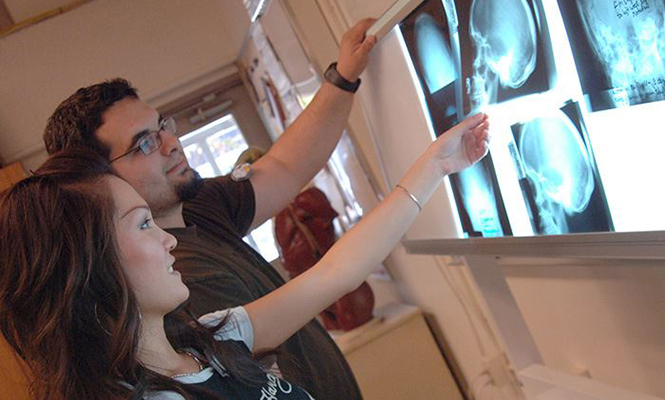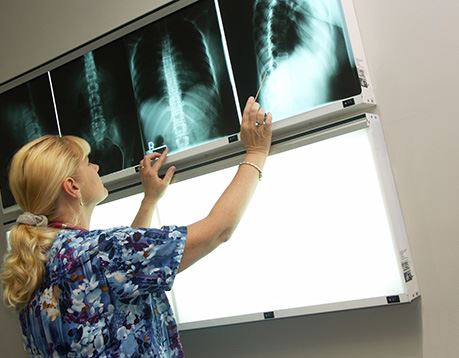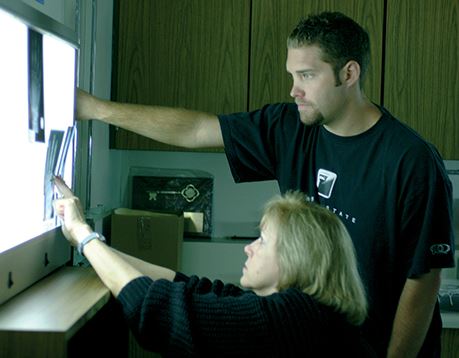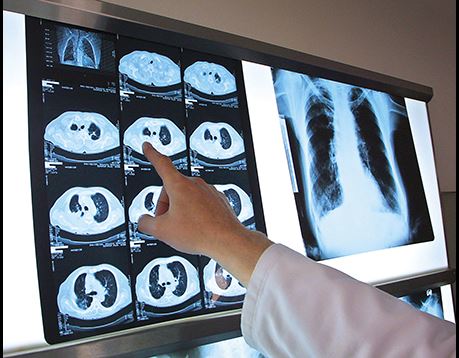From broken bones to blocked intestines, Rad Techs see it all. Radiologic Technologists capture images of human anatomy using digital imaging, x-ray film or video, which are then used by radiologists or other medical specialists to identify and diagnose conditions inside the body. OCC offers a two-year associate degree program that is accredited by the Joint Review Committee on Education in Radiologic Technology and approved by the California Department of Public Health. Graduates are eligible to sit for the California state Certified Radiologic Technologists (C.R.T) exam. If you picture yourself working as a vital part of a health care team, OCC's Radiologic Technology program can help you get there. Read on to learn more.
A sampling of courses for these careers
- Medical Terminology
- Radiological Physics and Protection
- Patient Care
- Anatomy-Physiology
- Human Diseases
- Clinical Lab
Did you know?
Overall employment of radiologic and MRI technologists is projected to grow 13 percent from 2016 to 2026, faster
than the average for all occupations, according to the U.S. Bureau of Labor Statistics.
Complete our associate-degree program, and you'll be well-prepared to enter a career in radiologic technology.
- BUILD ON YOUR SKILLSET WITH A: CERTIFICATE OF SPECIALIZATION
- IN LESS THAN 2 YEARS EARN CERTIFICATE OF ACHIEVEMENT
- OR EARN YOUR ASSOCIATE DEGREE IN UNDER 4 YEARS
View program detail in course catalog.
Advanced Clinical Practice
Recognize advanced training in one of several advanced areas of medical imaging and apply for and sit for the American Registry of Radiologic Technologists (ARRT) certification examinations in either Computed Tomography (CT) and Mammography (M).
View program detail in course catalog.
Imaging Assistant
Have the knowledge, skills and dispositions required for employment as an entry level Imaging Assistant in a healthcare setting.
View program detail in course catalog.
Radiologic Technology
Prepare for a career as a radiologic technologist, capturing images of human anatomy using digital, x-ray film, or video for diagnostic use by a radiologist or other medical specialist. After completing this program, you will be eligible for the American Registry of Radiologist Technologists certification exam and for the state Certified Radiologic Technologist exam. In order to practice in California, you also must apply for certification by the Department of Health Services in Sacramento. Or take your education further and enroll in a related bachelor's degree program at California State University, Northridge.
Frequently Asked Questions
Other Programs That Might Interest You
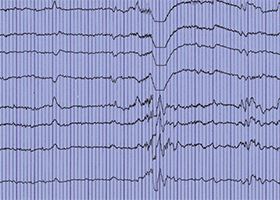
NEURODIAGNOSTIC TECHNOLOGY
Earn an associate degree to enter this field or choose our specialization certificate to upgrade an existing credential
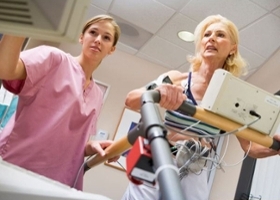
CARDIOVASCULAR TECHNOLOGY
Earn a certificate of achievement or an associate degree to enter this high-paying field.
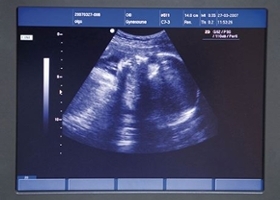
DIAGNOSTIC MEDICAL SONOGRAPHY
Earn an associate degree to launch a health career in this well-paying field
Did you know?
According to the Bureau of Labor Statistics, people who have a certificate as
their highest level of education earned, on average, 20 percent more than
those whose highest education level is a high school diploma.

